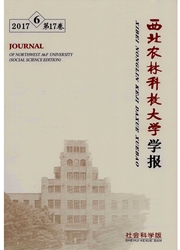

 中文摘要:
中文摘要:
以贵州省300多个林农的实地调查数据为依据,围绕林农异质性与集体林权改革中的林农获益状况,运用统计模型进行了实证分析并得出结论:基于家庭、认知和行动层面的异质性,社区林农从集体林权改革中获益的效果具有差异性。社区内林农经济资本越大、林业资本越多、劳动力资本越多、政治资本越充足以及对政策的认知程度越深,就越容易从林改中获得更多的收益和较好的效果,反之亦然。基于上述结论,政府在考虑完善集体林权制度改革政策时,应该注意和支持社区基层行动者的行动能力构建,特别需要关注基层利益主体由于行动能力差别而导致的获益差别化。
 英文摘要:
英文摘要:
In this paper, based on field survey data from more than 300 farmers in Guizhou Province, we, using statistical models, analyze the relationship between community heterogeneity and farmers benefit from collective forest tenure reform and conclude that= Based on the family, cognitive and action-evel heterogeneity, farmers in the community have differentiated effect on the benefit from the collective forest tenure reform. The greater the economic capital of farmers within the communities, more forestry capital, more labor capital, abundant political capital, and the deeper awareness level of policy, the easier to get more revenue and better results from the reform, and vice versa. Based on the conclusion, when considering options for perfecting the reform policies, the government should pay attention to the action capacity building to support the community-based actors, in particular, need to focus on grass-roots stakeholdersifferentiated benefit due to the difference of their action capacity.
 同期刊论文项目
同期刊论文项目
 同项目期刊论文
同项目期刊论文
 期刊信息
期刊信息
